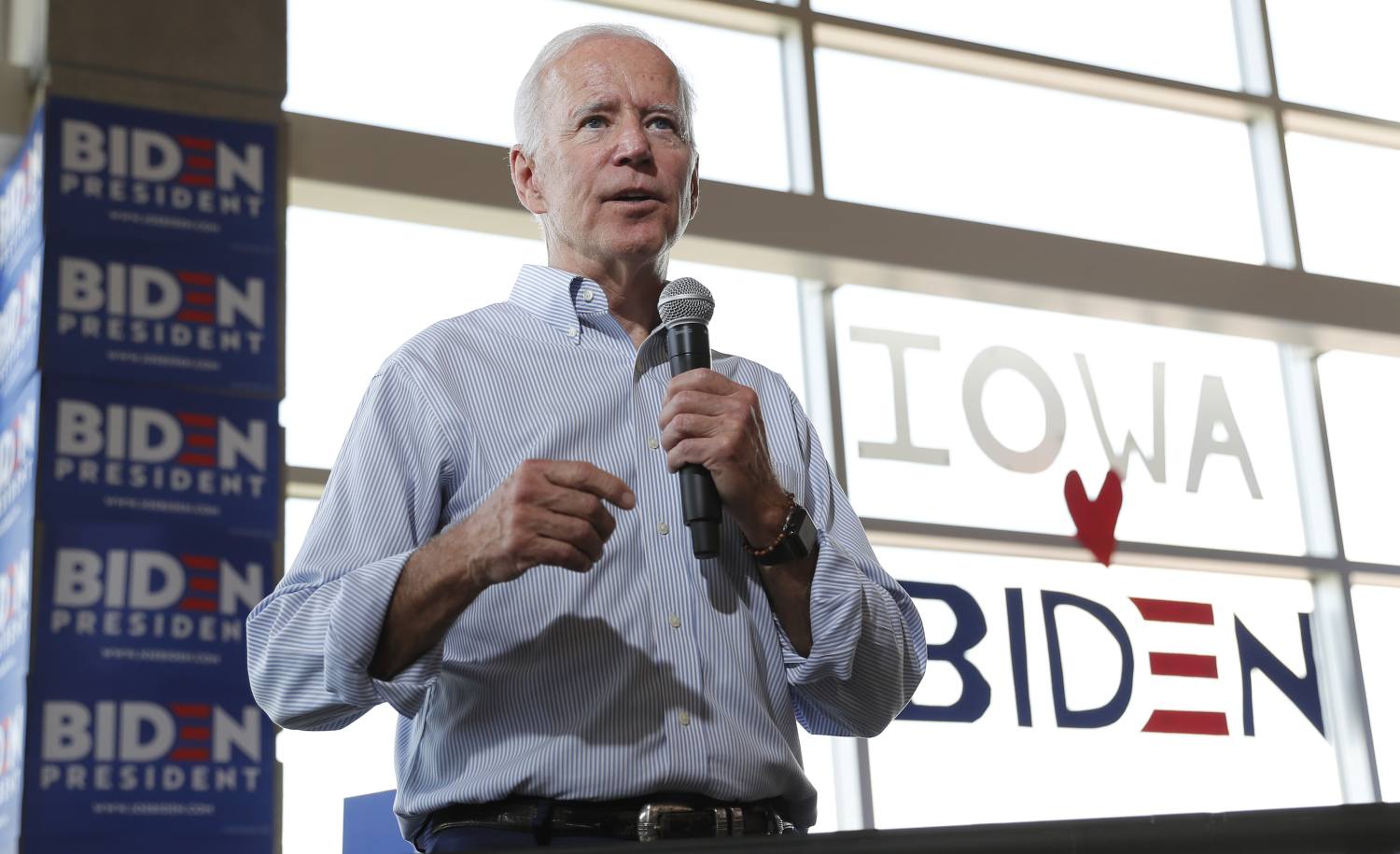Every campaign goes through periods where they begin pre-emptively making excuses for what they fear might be a close race they’re expected to easily win. Candidates don’t want to appear too over-confident, so they downplay their expectations and work to make sure their voters know they must get to the polls and not become complacent.
However, a statement from former vice president Joe Biden’s campaign on his prospects in the Iowa caucuses and New Hampshire primary have some campaign observers scratching their heads.
Politico has framed the comment around plans being laid by the Biden campaign for Super Tuesday and beyond, indicating that a loss in Iowa could be withstood without affecting their overall strategy:
“Do I think we have to win Iowa? No,” a senior adviser told campaign reporters Tuesday in a background briefing. The adviser said Iowa, which holds the first nominating contest in the nation, will be “critical.”
“We think we’re going to win. We think it’s going to be a dogfight. … But we think there are several candidates in this field, there’s probably three or four, that are going to go awhile.”
Specifically, Biden’s campaign mentioned Massachusetts Sen. Elizabeth Warren, Vermont Sen. Bernie Sanders, California Sen. Kamala Harris, New Jersey Sen. Cory Booker and Pete Buttigieg, the mayor of South Bend, Indiana.
Biden advisers have said they’ve laid the groundwork in early voting states but “are now ramping up for Super Tuesday and beyond,” and they have no expectation other top-tier candidates will leave the race after the first contests.
No candidate ever wants to concede the early primary states. Iowa is always discussed as being less meaningful in the process than New Hampshire or South Carolina, but the truth is that the result of Iowa often goes on to shape the other states, regardless of what analysts or campaigns sometimes start to believe.
However, the most notable exception, and perhaps something that Biden’s campaign strategists are keeping in mind, is that Donald Trump lost the Iowa caucuses to Ted Cruz, then easily went on to practically run the table and become the 2016 Republican nominee.
Is Biden’s team sensing some kind of anti-establishment upset happening in the Hawkeye State and they’re working now to downplay expectations and adapt their strategy to factor in a close Iowa loss? From these comments, it would appear that way.
Chris Cillizza, writing at CNN, calls the comments a way for the campaign to begin making excuses for Biden’s weakening performance:
“Do we think we have to win Iowa? No,” said one Biden campaign aide speaking to reporters. “Do we want to win Iowa? Yes, we do. We think we’re going to win; we know it’s going to be a dogfight. The same thing is true in New Hampshire.”
Uh … well, no.
Here’s the thing: When you are the frontrunner, you are expected to win. Everywhere. Otherwise, you aren’t the frontrunner anymore. That’s how it works.
Cillizza points to Rudy Giuliani in 2008 as the best example of a perceived polling front runner discounting early primary states leading to electoral disaster:
Remember back in 2008 when Rudy Giuliani, who polling suggested was the frontrunner for the nomination, based his entire campaign strategy on skipping Iowa in order to definitely win in New Hampshire? And how when New Hampshire started to go south on Giuliani, how Florida became the new New Hampshire for him? And how Giuliani never won a single primary or caucus and, relatedly, didn’t get elected president?
Right. There is simply almost no evidence in modern political history of a frontrunner losing Iowa and New Hampshire and coming back to win the nomination.
Losing Iowa can be overcome, Donald Trump proved that in 2016. Losing Iowa and New Hampshire would be total devastation for Biden, but it’s not out of the realm of possibilities to do so and still squeak by.
Biden’s team could argue, quite easily, that Iowa is not a good test since it’s often a bastion of the most liberal voters within the Democratic Party base. They might argue something like, “Biden wasn’t built to win a race like that, he’s a national candidate.”
That’s true, Biden polls better nationally than he does some of the early primary and caucus states.
Moving on to New Hampshire, the next built-in excuse is that Sen. Bernie Sanders, hailing from next door in Vermont, and Sen. Elizabeth Warren, hailing from the other next door in Massachusetts, already have a lock on the Granite State. Biden can compete there, but the inherent bias for some “hometown” names on the ballot puts everyone at a disadvantage.
The saving grace, in this theory, is South Carolina. The first early state with a sizable chunk of African-American voters in the Democratic primary. Biden polls well with that voting bloc, and it’s conceivable he could lose Iowa, lose New Hampshire, and then quite handily win South Carolina.
Of course, if Biden lost Iowa and New Hampshire, which candidate could we presume would have won them? It’s looking more and more like Elizabeth Warren, but that dynamic could easily change.
The real bottom line here is that Biden needs to win and win early to have any chance of avoiding some prolonged drawn-out contest. If he can’t secure Iowa or New Hampshire, that would give voters serious pause in South Carolina and Nevada.
Donate Now to Support Election Central
- Help defend independent journalism
- Directly support this website and our efforts
